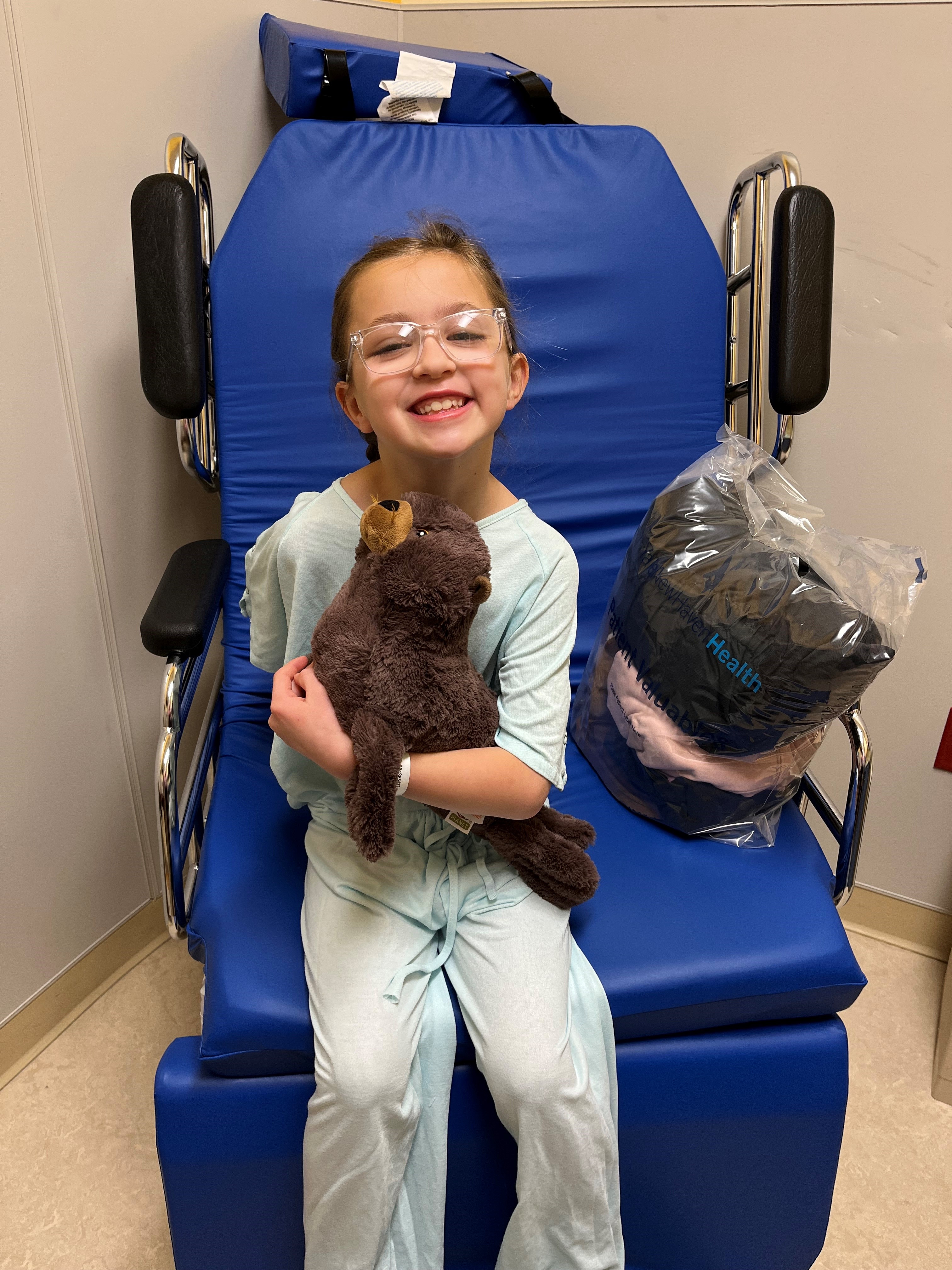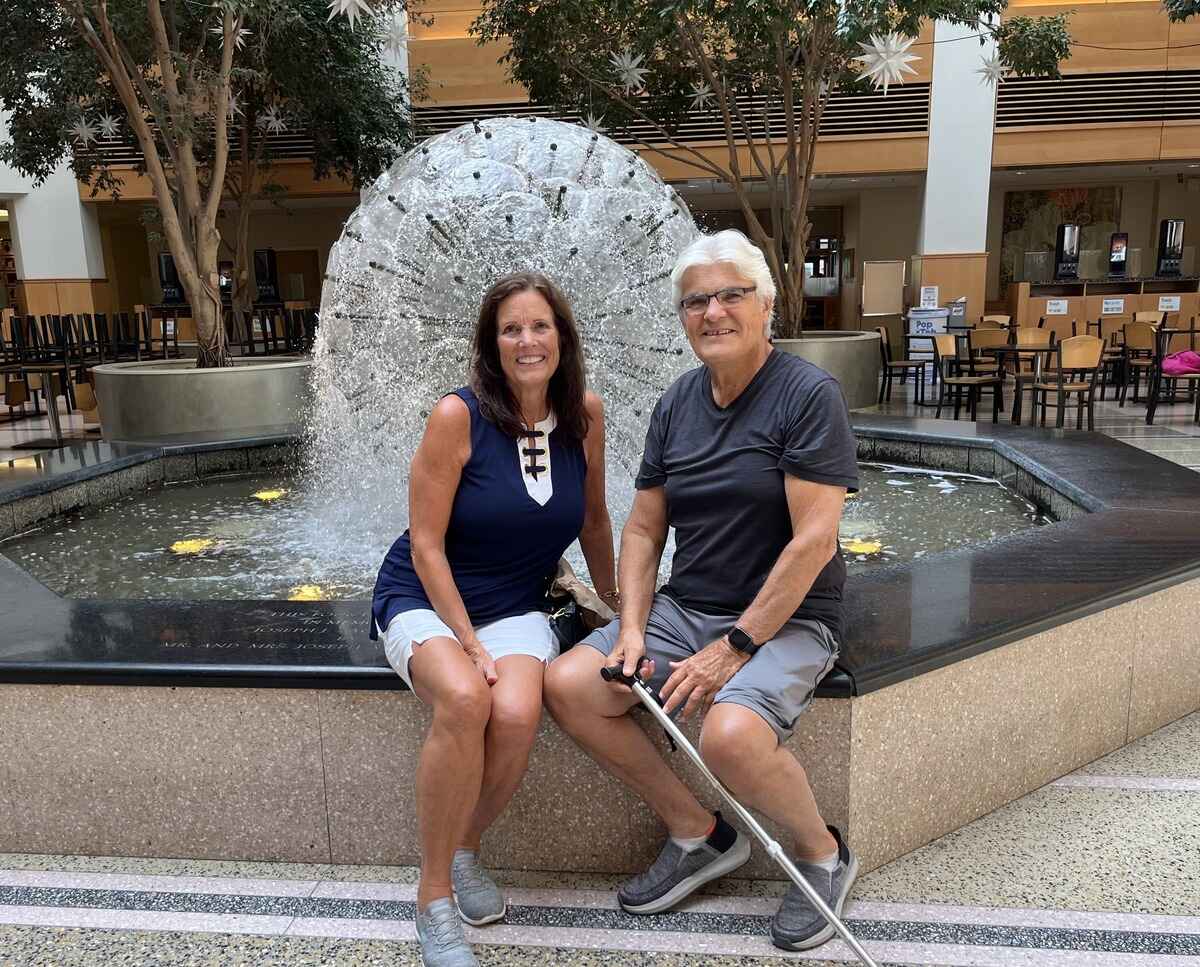Dedicated to tomorrow's therapy
As part of a groundbreaking clinical trial, Peter Ehmer, 44, received treatment for his diagnosis of stage III bladder cancer. Prior to this, he had received three months of chemotherapy, had surgery to remove his bladder and prostate and participated in a clinical trial. While on this trial, two of his lymph nodes continued to grow.
Dr. Daniel Petrylak, Professor of Medicine and Urology, Clinical Research Leader for the Prostate and Urologic Cancers Program, and Co-Director of the Signal Transduction Program, along with his colleagues, had been looking at an antibody to help patients like Peter with urothelial bladder cancer (UBC). They tested this antibody on 15 patients, including Peter, whose metastatic UBC had not been reduced by chemotherapy, typically the final option for such patients. This new synthetic “checkpoint blocking” antibody is called MPDL3280 and it targets a protein named PD-L1 (programmed death ligand 1) that is expressed by some patients’ bladder cancers.
“We found a very high response rate,” said Dr. Petrylak. “After twelve weeks of treatment, more than half of the patients had at least a 50 percent decline in their tumor measurements. Two patients had complete disappearance of the tumor. One patient had a cancerous lymph node in his neck, which has completely disappeared; this patient had been on three previous chemotherapies. This was the first time we’ve seen this dramatic a response in patients at this stage of the disease.”
PD-L1 binds to the surface of bladder cancer cells and sends out disinformation that lulls the immune system into shutting down, which allows the cancer cells to proliferate without interference. MPDL3280 prevents PD-L1 from binding to its receptors and thus short-circuits its deceitful signals. The immune system wakes up, detects the cancer cells, and sends T-cells to destroy them.
The responses among the patients at Yale were not only dramatic, but also prolonged. The trial was designed to treat the patients every three weeks for up to a year, but that has been extended, explained Dr. Petrylak, “because the patients’ tumors are still responding, and because we really don’t know the optimal duration at this point.”
Peter had a CT scan after receiving three treatments of MPDL3280. “Dr. Petrylak called within an hour,” said Peter, “to say that the lymph nodes had not just shrunk but disappeared. I was very emotional. I called my wife right away and shared the news with my two kids when I got home.”
Peter also explained that he didn’t experience any harsh side effects either. After having been through a lot of treatment and testing, it was a relief for Peter and his family. They are so grateful that he had the chance to be a part of this clinical trial, and receive this breakthrough therapy.




